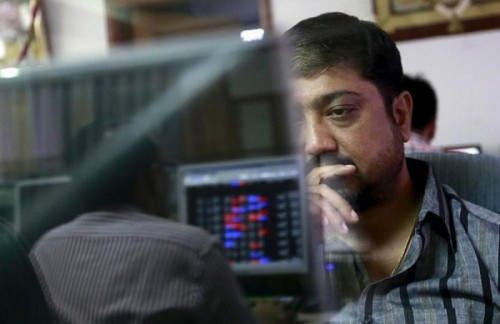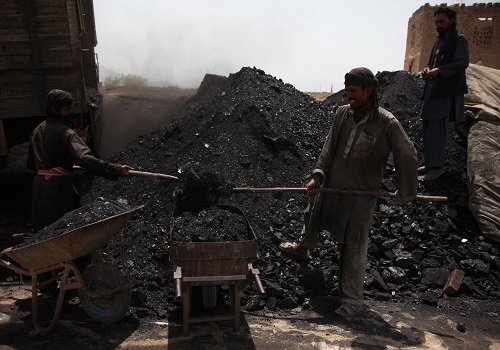Opening Bell: Domestic indices likely to get cautious start amid lackluster global cues

Follow us Now on Telegram ! Get daily 10 - 12 important updates on Business, Finance and Investment. Join our Telegram Channel
Indian markets ended modestly lower on Wednesday as the Reserve Bank of India (RBI) raised its benchmark interest rates for the fifth consecutive meeting. Today, domestic indices are likely to get cautious start amid lackluster cues from global markets. The Gujarat and Himachal Pradesh assembly election results will be the key triggers for the equity markets today. Traders will be concerned with a private report stating that India's GDP growth may slow down sharply to 5.1 percent in 2023-24 and force the Reserve Bank of India (RBI) to cut the key repo rate by 75 basis points (bps) in the second half of 2023. Besides, foreign fund outflow likely to dent sentiments. Foreign institutional investors (FIIs) net sold shares worth Rs 1,241.87 crore on December 7, as per provisional data available on the NSE. However, traders may be taking encouragement with a private report that robust GST collections will help achieve the FY23 revenue growth target on the indirect taxes front, despite the impact of duty cuts on central excise and customs mop-up. Some support may come as the government extended export benefits under the tax refund scheme -- RoDTEP -- to chemicals, pharmaceuticals and products of iron and steel for a specified period with a view to boost shipments of these goods, amidst exports growth recording a contraction of 16.65 per cent in October. Traders may take note of report that the government is working on ways to contain surge in imports of non-essential goods with an aim to boost the country’s exports and reduce trade deficit. Power stocks will be in focus as Union minister R K Singh said the single-day peak demand for power is expected to increase by up to 35,000 MW in April 2023 and the government has started preparations to meet the same. Separately, India plans to build more nuclear power plants to increase the production of clean energy. Meanwhile, Dharmaj Crop Guard shares are likely to get listed on BSE and NSE today. Dharmaj Crop Guard IPO had received a good response from investors, and the company is likely to see a strong debut on stock exchanges.
The US markets ended mostly in red on Wednesday as investors struggled to grasp a clear direction as they weighed how the Federal Reserve's monetary policy tightening might feed through into corporate America. Asian markets are trading mostly lower on Thursday with recession fears weighing on continued negative sentiment.
Back home, Indian equity benchmarks traded lackluster for yet another session on Wednesday due to losses in Utilities, Realty and Consumer Durables stocks amid weak global cues. After making cautious start, key gauges trade marginally in green as traders took some support with Fitch Ratings’ report in which it has retained India's economic growth forecast at 7 per cent for the current fiscal, saying India could be one of the fastest-growing emerging markets this year. Some support also came as the World Bank in its India Development Update said the central government is on track to meet its fiscal deficit target of 6.4 per cent of the GDP for 2022-23 on the back of strong growth in revenue collections. High nominal GDP growth in the first quarter supported strong growth in revenue collection, especially Goods and Services Tax (GST), despite tax cuts on fuel. However, markets failed to hold gains and slipped into red terrain in late morning deals, as investors booked profits post the rate hike by the RBI governor. The Reserve Bank of India (RBI) has increased the policy repo rate under the liquidity adjustment facility (LAF) by 35 basis points to 6.25 per cent with immediate. Meanwhile, it also announced a mild reduction in the GDP growth forecast for the current financial year to 6.8 per cent from 7 per cent earlier. It said that while the growth forecast had been reduced, India would still be among the fastest-growing major economies. Some concern also came as Niti Aayog has raised objections to certain provisions pertaining to the proposed DESH bill, which seeks to replace the existing law for special economic zones. In the Union Budget 2022-23, the government had proposed to replace the existing law governing Special Economic Zones (SEZs) with a new legislation to enable states to become partners in 'Development of Enterprise and Service Hubs' (DESH). Finally, the BSE Sensex fell 215.68 points or 0.34% to 62,410.68 and the CNX Nifty was down by 82.25 points or 0.44% to 18,560.50.
Above views are of the author and not of the website kindly read disclaimer










Tag News

Weekly Market Analysis : Markets strengthened recovery and gained nearly 2% in the passing w...














